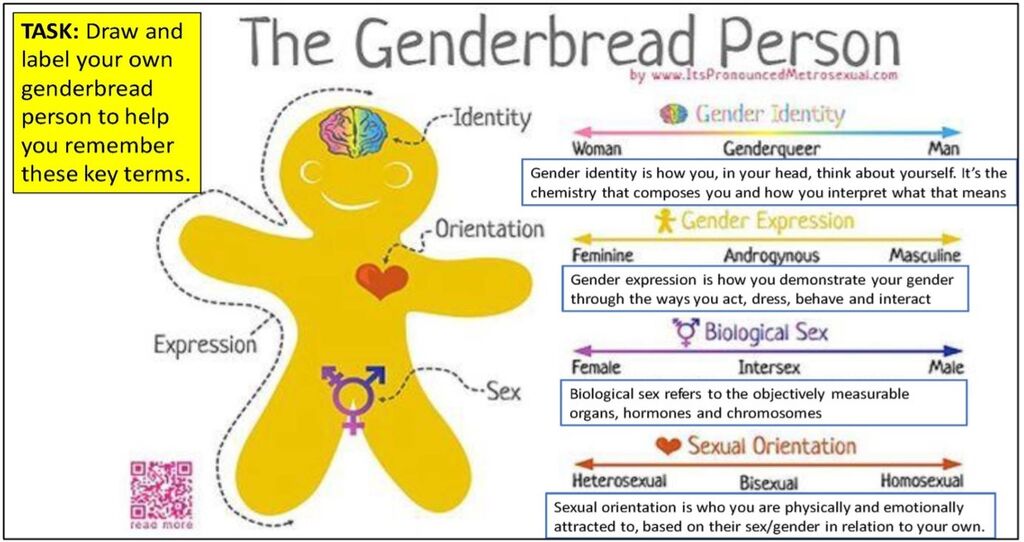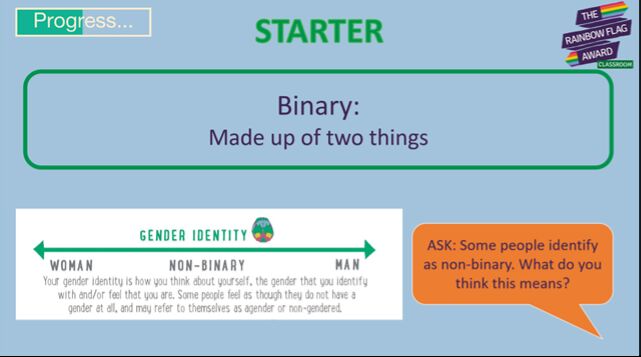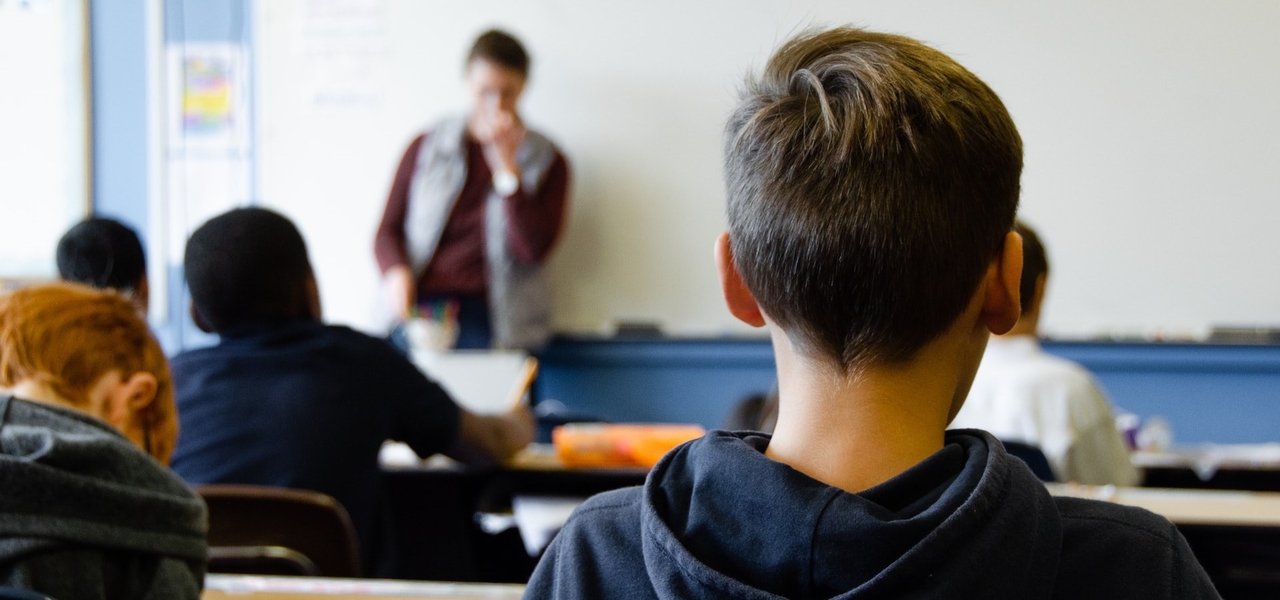It was about 13 years ago, as a school governor at my children’s primary school, that I was first shown the material used for Relationships and Sex Education (RSE).
As a Community Paediatrician, I was used to seeing children for whom family breakdown had played a significant part in their difficulties. It was extremely disturbing, therefore, to see the way that sex was portrayed as purely a fun activity, the lack of teaching on marriage, and how explicit the materials were. Since that time the situation has only become worse: the material has become ever more extreme and explicit, and now teaching on gender ideology has become increasingly widespread.
Over the past 10 years we have seen an explosion in the number of children and young people declaring a gender identity which is different to their biological sex. We are also seeing increasing awareness of the harm being done to these children and young people by allowing them to pursue medical and surgical interventions which a growing body of evidence is exposing as harmful and irreversible.
What is encouraging, however, is that concern at what children are being taught is becoming more mainstream, and these concerns are shared by people from across the political spectrum.
One recent report commissioned by Miriam Cates (Conservative MP for Penistone and Stockbridge) focuses in-depth on the inappropriate nature of the material that is regularly being used in schools up and down the country. Another report by the Policy Exchange, with a foreword by Rosie Duffield (Labour MP for Canterbury), focuses on the ways safeguarding principles are being undermined by the widespread influence of gender ideology in schools.
It is no longer just those with strong religious beliefs who are worried about what their children are being taught: feminists (many of whom have no faith) are becoming increasingly vocal in defence of women’s rights, and secular organisations such as SafeSchoolsAlliance are working extremely hard to expose and combat the teaching of gender ideology in schools.
So what are children actually being taught? And what impact is it all having?
Become your true self
Schools, understandably, are looking to boost children’s self-esteem. Children are regularly told how important it is that they can “be themselves”, that they can be whoever they want to be and just need to follow their dreams.
But how do they know who they are? Well-intentioned messages can put huge pressure on children as they try to discover who they are, in order to become that person or to live up to others’ expectations.
Where this becomes more worrying is with the way that gender ideology is now being taught in our schools: this defines gender as something that may not align with biological sex, and is something that children need to work out, in order to discover who they are. Children are being taught to question the biological and physical reality of who they have been created to be in favour of an inner sense of identity based on gender stereotypes and how they feel.
There are a number of books, such as this one, which are promoted in primary schools (and even nurseries) that inform children that adults actually guessed their sex when they were born and that they might have got it wrong because only they themselves know whether they are male, female or neither! Other Schools may use the ‘Genderbread person’ or the ‘Gender Unicorn’ which present aspects of gender and sexuality as being on a spectrum: these illustrations can be quite baffling for adults, let alone for children!

This is particularly likely to raise questions in the minds of children who already have issues around identity and attachment, such as those from unstable homes or in foster care, or where role models have been poor or absent. Children are increasingly being taught to disregard biology and that women can have penises or that all genders can have periods. And the teaching is profoundly confusing: I have been told about situations where a young child has come home worried that they are going to become the opposite sex or very confused when a friend of theirs suddenly declares themselves to be the opposite sex.
Gender identity can fix your problems
This area becomes even more complicated as children approach puberty and adolescence: teenagers and adolescents (the brain is not fully mature until about the age of 25) are going through a complex process of physical and emotional change which includes trying to understand who they are apart from their parents. Some sail through these changes but others struggle to a greater or lesser degree and will experience significant difficulties adjusting.
Too often young people are being encouraged (often through social media) to understand their difficulties through the lens of gender identity and come to believe that identifying with a different gender identity is the answer to all their distress.
Almost 2/3 of girls identifying as transgender already have a pre-existing mental health condition. Around 1/3 have autism or another neurodiversity. 41% of people identifying as trans do not identify as heterosexual, and there are also links with eating disorders as well as bullying prior to adopting a trans identity. Young people are increasingly being taught that going through puberty is optional and seek drug treatment to stop the changes.
As Christians we are uniquely placed to speak into this – our identity comes not from what others think of us, nor how we feel inside but from our creator God! (Andrew Bunt writes very helpfully and personally on this in his book Finding Your Best Identity)
Gender stereotypes are back in
The whole area of gender stereotypes and gender identity seems to be a mess of contradictory concepts which are totally confusing to children and young people.
On the one hand, young children are encouraged to be gender-neutral and we are told that any differences between boys and girls are purely socially constructed. We are told that men and women are not just equal but that they are interchangeable.
But on the other hand, children are told that if they like toys associated with the opposite sex or clothes usually worn by the opposite sex then maybe they are really the opposite sex, and that they might have gender dysphoria (a sense of unease that a person may have because of a mismatch between their biological sex and their gender identity).

There is also increasingly a third narrative: that gender is a spectrum with infinite possibilities and can change from day to day or even throughout the day.
One provider, Jigsaw, poses the following question to fourteen-year-old pupils: “Gender and sexual identity – is it a spectrum or a galaxy?”. They then suggest that you “add you own planet (comet or moon)! Make your own solar system or galaxy!”, offering example terms such as “agender”, “neutrois”, “3rd gender”, “gender queer” or a “two spirit galaxy”.
All of these ideas are increasingly not just being taught in RSE but often throughout the curriculum! The Rainbow Flag Award scheme provides lesson plans designed to embed LGBT+ throughout the curriculum – just one example is this PowerPoint slide which makes up part of a computing lesson, rather than an RSE lesson.

All of this can leave children extremely confused about what it really means to be male or female: it all becomes about feelings and preferences rather than about the reality of biology and the numerous biological differences between men and women.
The only boundary in sex is consent
Another aspect of RSE teaching in schools that is having a huge impact, particularly on teenage girls, is that of so-called “sex-positivity”.
Of course, we should be positive about sex: it is a wonderful gift from God, given to strengthen the relationship between a husband and wife, as well as to create new life. But this is not what this term means in our society currently.
Sex-positivity regards all consensual sexual activities as fundamentally healthy and pleasurable, encouraging sexual pleasure and experimentation.
As a result of this children are frequently taught about all kinds of extreme and potentially harmful sexual practices: Pornography and sex-work are often considered to positive and empowering to women. Anal sex is now taught despite the increased health risks for women in particular, seemingly in an attempt to talk about homosexual sex as much as heterosexual sex. Other activities being taught about include ‘chemsex’ (taking drugs while having sex), and even things like choking and strangulation. Such activities are being presented in a ‘sex-positive’ way, with little attention given to potential (eg. in the Proud Trust’s Inclusive Sexual Health Toolkit).
When RSE lessons in school are based on this ethos, children become sexualised and exposed to highly inappropriate information, both at school and on their devices outside of school: explicit material is only too easily available online, often under the guise of “educational” websites, such as BISH, which provides an A-Z of pornography, and is aimed at teenagers.
Girls may be afraid to grow up and become women because they don’t want to be treated like this, and equally, some boys do not want to grow up into the kind of men who treat women this way. It is hardly any wonder teenagers are wanting to opt out of growing up into a man or a woman: there are increasing numbers of this age group that are identifying as non-binary (neither male nor female) and are requesting medical interventions to obtain an androgynous look.
Questioning gender identity is transphobic
The situation in many schools is that anything other than complete acceptance and often celebration of a child’s declared gender identity is considered to be transphobic.
There are numerous stories of teenagers declaring a trans identity and the school holding a celebration assembly where this is presented to the entire year group or even the whole school.
In this article, a 14 year old describes the situation in her pretty average secondary school: “There has been a significant influx of girls in my classes demanding that other children refer to them with biologically incorrect pronouns and “gender identities” such as “gender-fluid” and the like.” She explains that she is too afraid to say anything that goes against the accepted norm in case she is targeted.
Even more concerning is the fact that there have been many situations reported where schools have gone ahead and embraced a child’s chosen identity and allowed them to change name, use different pronouns and change clothes, all without parental permission or even knowledge; some parents have even been reported to social services for opposing these changes made by the school.
What can we do?
Reading this article may have been shocking for some and depressing for many! It is easy to feel hopeless and helpless in the face of the prevailing narrative in our society and the cries of transphobia and homophobia if we dare to speak out.
But there are increasing numbers of people speaking and there is an ever-growing body of evidence that gender ideology is harming children. Measures that have been put forward as loving and the right thing to do, such as letting children socially transition (change names/pronouns/clothes etc), are increasingly understood not to have a positive benefit in the long term and are in fact significant interventions that may cause gender distress to continue.
It is easy to be put off by the media stories of people losing their jobs for questioning what is being taught in schools, but we don’t tend to hear about the success stories where parents have succeeded in influencing the content of teaching in their child’s school.
Here are a few things you can do yourself:
- Ask to view the RSE materials being taught in your child’s school
- Talk to your children about what they are being taught in their lessons
- Be nosy and look what books are in your school library
- Consider becoming a school governor
- Use opportunities to talk with your children about what being male and female means while avoiding unnecessary gender stereotypes.
And let us all, whatever our role, continue to keep an eye on whether teaching is in line with biology, or with ideology.
Dr Julie Maxwell MBBCh MRCPCH is a community paediatrician and a member of the Church of England General Synod. She works part time for Lovewise and is a trustee of Family Education Trust. She has over 20 years’ experience of church youth work and is co-author of the Greater Love Declaration.

